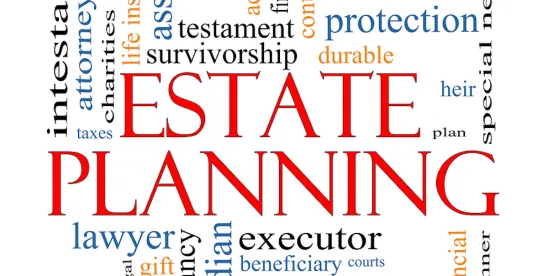For most business owners, the business is the most valuable item on their balance sheet. From an estate planning perspective, the equity in the business is also often the best asset to use for lifetime transfers to pass value (and future appreciation) out of the taxable estate. Before an estate planner can effectively provide guidance on the planning opportunities for the business, he or she will need some background information about the business. This data gathering does not need to be all-encompassing, but a good estate planner will want to know as much information about the business as possible since it is often closely intertwined with the client. Some information can be gathered through the business owner’s other professionals, such as separate business legal counsel, internal executives, accountants, and financial advisers, and it is important to have an open communication among the estate planner and these professionals as early on in the process as possible.
Key questions an estate planner may ask and other information that is critical to understanding the business as an asset includes:
- Legal Structure: What type of entity is the business and how is it taxed? Is it a single entity or multiple entities? How is the business real estate owned? If everything is owned in a single entity, then the planning will focus on that entity. If there are multiple entities, then there will need to be an understanding of the purpose of each entity and whether they can be separated from the enterprise for purposes of transferring interests in those individual entities rather than the whole. Certain entities, such as entities taxed as S corporations, have restrictions on who or what entity can be an owner, so this information is critical as well.
- Ownership: The client may be the sole owner of the entity, in which case the ownership structure is not important. However, there may have been small transfers of equity to key employees, early investors, or other family members, which is critical to know.
- Business Documents: If there have been prior transfers, the hope is that there is an effective Shareholder/Operating Agreement in place that covers the relationship among the equity holders. Other documents that will need to be reviewed include bylaws (for corporations) or limited liability company agreements / operating agreements (for limited liability companies or limited partnerships), which may have unintended transfer restrictions in them that will need to be addressed prior to making any transfers of equity.
- Valuation: At this stage, the business owner may not have any idea what the value of the business is or could be. The estate planner may want to review balance sheets and income statements and discuss with the business owner and perhaps the accountant some rough idea of value. If the business owner has previously had a valuation prepared, then the estate planner would want to see that report.
- Cash Flow: How is the business providing cash flow to the owner, and how does the cash flow from the business relate to the personal expenses of the owner? This discussion often requires the input of the client’s financial advisers. Is the business owner taking a salary and is that salary reasonable? Are net profits being distributed to the equity holders at the end of the year or are they being reinvested in the business? Are distributions being made to cover tax liabilities of the owner as it relates to his or her equity? What “personal” expenses, if any, are currently being funded through the business? This information helps the estate planner analyze the impact of a transfer of some (or all) of the equity by the business owner.
- Stage of Business: Is this a start-up or a multigenerational family business? Is the business owner approaching “retirement” age or circumstances? Does the business owner have a timeframe for exiting the business? Is the business product or service something that has a long horizon or will it have a natural end of usefulness at some point? Has there been interest from third parties about buying the business? Has the business owner engaged or discussed selling with any investment bankers or business brokers?
- Succession Planning: Is there a family member or members who will take over the business? Is there a succession plan generally? Are there non-family members who are currently employed by the business who would continue to run the business? Does the business owner think anyone can truly replace what they bring to the business?
In addition to gathering the information on the above, the estate planner will also want to discuss with the business owner his or her goals and objectives. Often, the primary goals are to sell the business for as much money as possible, pay as little tax as possible, and use the sale proceeds to benefit the business owner for the remainder of his or her lifetime, as well as to provide for the business owner’s family. The questions then revolve around how much of the net sale proceeds does the business owner realistically need to keep in his or her name to live the lifestyle he or she wants, and how much can be transferred to or for the benefit of his or her family members now to take advantage of the valuation and tax savings that will be discussed in subsequent parts of this series.



 />i
/>i

